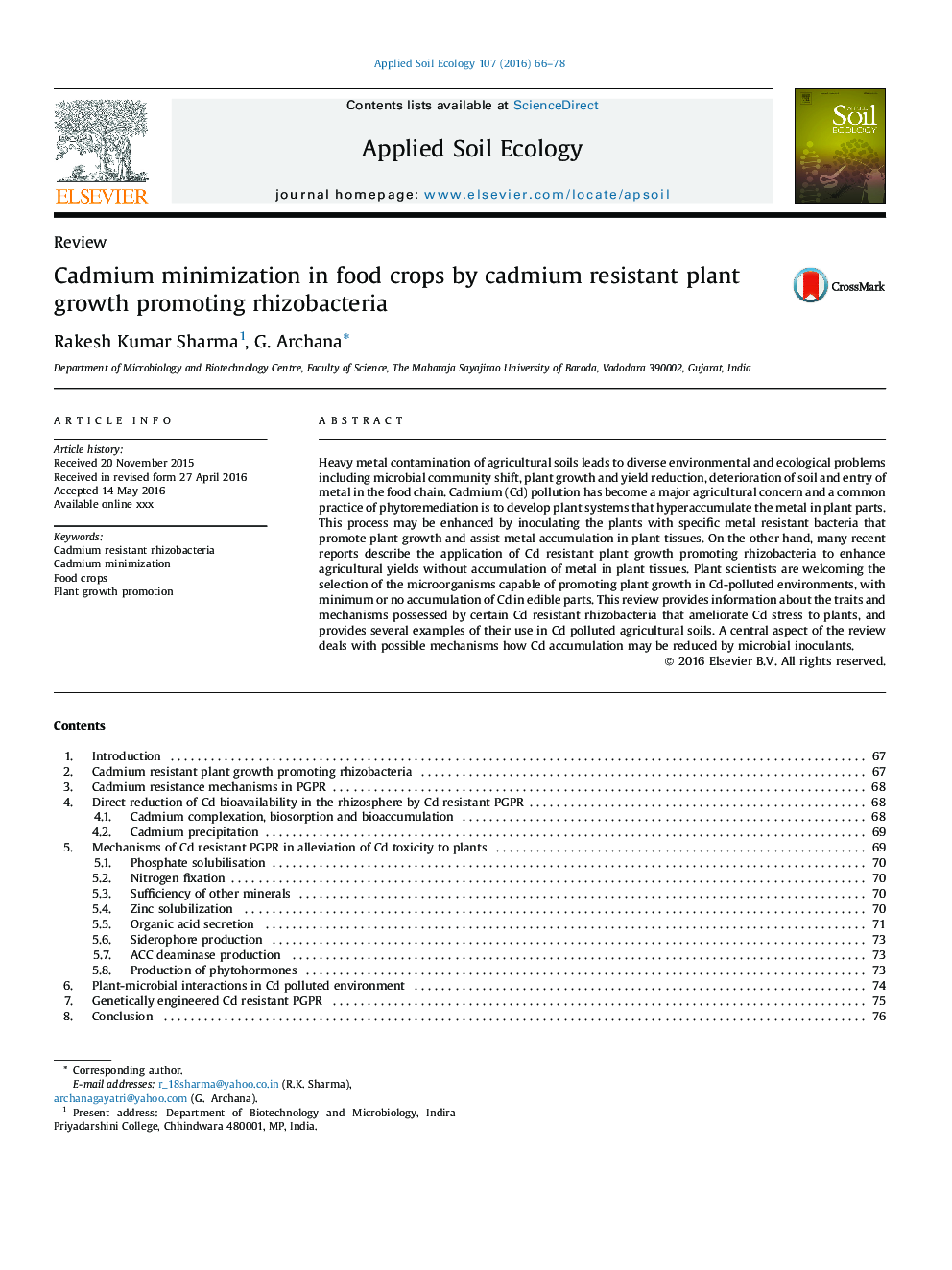| Article ID | Journal | Published Year | Pages | File Type |
|---|---|---|---|---|
| 6297670 | Applied Soil Ecology | 2016 | 13 Pages |
Abstract
Heavy metal contamination of agricultural soils leads to diverse environmental and ecological problems including microbial community shift, plant growth and yield reduction, deterioration of soil and entry of metal in the food chain. Cadmium (Cd) pollution has become a major agricultural concern and a common practice of phytoremediation is to develop plant systems that hyperaccumulate the metal in plant parts. This process may be enhanced by inoculating the plants with specific metal resistant bacteria that promote plant growth and assist metal accumulation in plant tissues. On the other hand, many recent reports describe the application of Cd resistant plant growth promoting rhizobacteria to enhance agricultural yields without accumulation of metal in plant tissues. Plant scientists are welcoming the selection of the microorganisms capable of promoting plant growth in Cd-polluted environments, with minimum or no accumulation of Cd in edible parts. This review provides information about the traits and mechanisms possessed by certain Cd resistant rhizobacteria that ameliorate Cd stress to plants, and provides several examples of their use in Cd polluted agricultural soils. A central aspect of the review deals with possible mechanisms how Cd accumulation may be reduced by microbial inoculants.
Keywords
Related Topics
Life Sciences
Agricultural and Biological Sciences
Ecology, Evolution, Behavior and Systematics
Authors
Rakesh Kumar Sharma, G. Archana,
